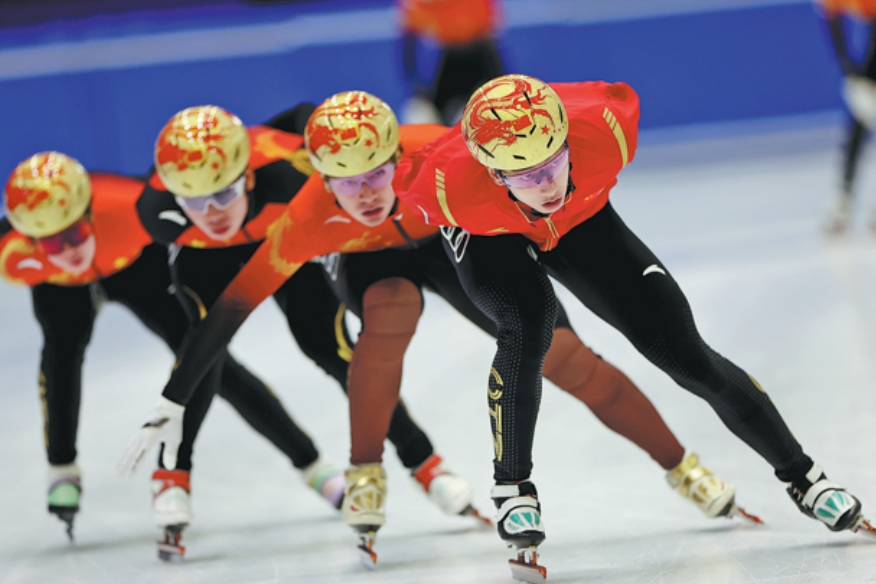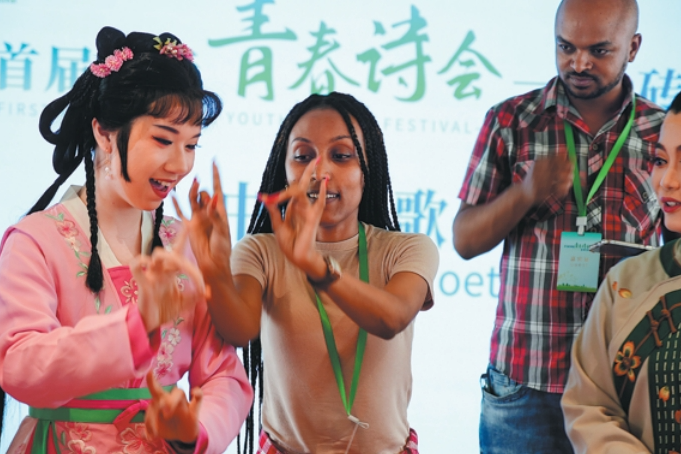Journalism studies rally to stay on front line of relevance
By Zhao Yimeng | China Daily | Updated: 2024-10-24 09:16
Broadcast journalism student Huang Ziqing, 21, is well aware the career she is studying for is at the crossroads.
However, she believes the intrinsic worth of broadcast journalism is still intact, and the major at the Communication University of China in Beijing will not disappear any time soon.
Huang is encouraged by one of her professors Zhang Long, who said that while broadcast media might be in decline, its practice and professionalism are irreplaceable.
"Having hands-on experience in broadcast media is still highly valuable," she said.
For the past three years, Huang has been inspired by professors like Zhang and gained a deeper understanding of journalism and voicing China's perspectives on the global stage.
"Zhang returned from the front line of news production and shared with us fresh insights from his time as a reporter. He also invited veteran journalists to lecture, making the class rich in both theory and practice," Huang said.
For instance, Zhang once told a class an impactful moment of when he accompanied a correspondent to investigate a local water pollution case.
"He told us although the well water in the village was obviously contaminated, the reporter still drank a bit to demonstrate to the audience the severity of the situation in front of the camera," Huang said, adding that such vivid examples left a lasting impression on her.
However, she said practical courses intended to improve the students' video-shooting skills had lost some of their intensity. "We spend more time doing tests and in classrooms looking at PowerPoint slides than using cameras," she said.
Huang also suggested adjustments be made to some outdated content and the teaching material of certain courses.
"Some of our material hasn't been updated in a decade, even in fields like integrated journalism where media is evolving rapidly," she said.
The curriculum should be changed to bridge the gap between academia and the journalism industry, particularly in leveraging the university's rich resources like professional networks and technology, she added.
After studying at CUC for three years, Huang said what she benefited most from was the reshaping of her worldview and changes in her personality and interests.
"We had courses that required us to produce documentaries, which gave me a new perspective on the world," she said.
On the question of what her future career will be, Huang pointed to public relations studies and her active engagement in student organizations, particularly the media operations of the student union.
After graduation, she plans to pursue a master's degree in marketing in her hometown of Guangzhou, Guangdong province.
"Now I realize the most important thing is finding what you truly want to do. Once you figure that out, anxiety and competition become less of an issue because you know what you're striving for," Huang said.
























